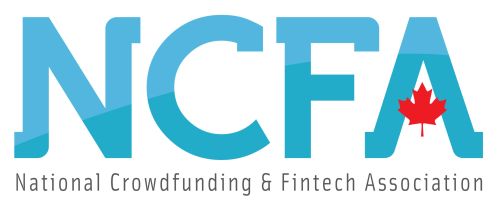Interview Begins
To make Open Banking successful it must be done through mandated regulation first for innovation to happen.
— Brenton Charnley, CEO and Founder of Open Finance Advisors, Australia (Ex-TrueLayer ANZ CEO)
Mahi Sall: Please tell us a bit about yourself.
Brenton Charnley: Brenton Charnley is the CEO and Founder of Open Finance Advisors, an Australian based consultancy specialising in the Consumer Data Right, Open finance and Open banking in Australia. Brenton is also the Founder of Open Finance ANZ the leading community of innovators furthering open finance in Australia and ex-CEO of TrueLayer ANZ.
Mahi Sall: The premise behind common rules is that they create a level playing field which eliminates the need for bilateral arrangements between Open Banking participants. On the other hand, bilateral arrangements are said to be a catalyst for more innovation.
What are your thoughts in terms of striking the balance between fostering innovation and creating a level playing field in financial services through Open Banking?
Brenton Charnley: Having experience working on both sides of the ‘innovation fence’ that is inside a large regulated financial services organization and on the outside working for innovators in fintech and insurtechs, I have lived and breathed the opportunities on both sides. The reality is, if you already have a large core (and regulated) business, you and your shareholders will do what they can to protect it. I therefore believe to make Open Banking successful it must be done through mandated regulation first for innovation to happen. For if nothing needs to change, then why change? We have seen this play out first hand in Australia with the Consumer Data Right. Even with mandated regulations, it has taken over 4 years to get to a stage of ‘good’ coverage of regulated data access. Compare this to New Zealand which has bi-lateral agreements, and sadly there isn’t enough coverage to justify it as a success just yet.
Mahi Sall: Canada’s Advisory Committee on Open Banking recommended to exempt federally regulated banks from the accreditation process, and similar consideration for provincially regulated financial institutions to be discussed, while all third-party providers (TPPs) will be subject to accreditation.
What major frustration points relative to an Open Banking Accreditation Process can be anticipated and how to address them?
Brenton Charnley: The fundamental challenge that Australia has experienced with the Consumer Data Right is the balance required between regulated data access and the need for information security to protect the consumers data and the privacy laws which define who can access and what can be done with the data. The data is ultimately leaving a highly regulated and secure environment and therefore it should go to a comparatively secure environment, correct? Well it really isn’t that simple. To hold early adopters and innovators to the same or similar technology and information security standards as highly profitable, large and regulated banks creates unnecessary barriers to entry for market participants.
In addition to these challenges, the access models under the Consumer Data Right were not fit for purpose at launch and needed to be amended to extend for different use cases and participants. This has caused a lot of complexity and a “wait and see” approach over the last two years meaning that participation has been low.
To address these challenges, I’d recommend learning from the experiences of both the PSD2 environment and CDR. Then, look to identify simple use cases and accreditation pathways to get started with regulated data sharing. Further, it is necessary to divorce the Privacy Standards from the Open Banking Standards to ensure that the regulations, and therefore accreditation, is not overly restrictive. In addition, having a principles based approach would help get moving instead of having an overly prescriptive compliance framework.
Mahi Sall: Two approaches to technical specification development currently dominate the open banking landscape: single standard approach (e.g. UK, Australia) and multiple standards (e.g. US, EU). Canada’s Advisory Committee left both approaches open for exploration given a lack of consensus by stakeholders.
Speak to the advantages and shortcomings of the approach you are most familiar with.
Brenton Charnley: Having experience only with the Consumer Data Right I can only advocate for a single standard approach. That being said, in our experience even with a single standard adherence to those standards varied greatly. Therefore, I would recommend against multiple standards.
Mahi Sall: Low adoption by customers is often cited as a key limiting factor to the take-off of Open Banking.
What could Canada do differently than other jurisdictions in order to pre-empt this risk?
Brenton Charnley: This is correct. From Australia’s experience two years in, we have seen limited consumer adoption. I’d recommend accelerating the participation of intermediaries and early adopters to get use cases into market. It should not be left to the banks to add ancillary data sharing services to their existing products. The UK had a successful innovation competition to help incentivise participation, this could also be done.
I’d also recommend absolute transparency on the consumer participation numbers (e.g. number of completed consents). As an industry the north star metrics must be the number of consumers using it, else it can’t be seen as a success.
Mahi Sall: Drawing upon observations in your and other jurisdictions, what are some of the quick wins in terms of Open Banking use cases that banks and fintechs in Canada should prioritize rolling out?
Brenton Charnley: The top three would be personal finance management, account verification especially for payments and loan applications.
Mahi Sall: What role does talent play in developing a thriving Open Banking system?
Brenton Charnley: Open banking will thrive on an already working fintech, payments and financial services community. If the talent is strong here, then you should see innovators in these sectors look to adopt open banking as ancillary innovation.
No one says I want to “do open banking”, they just want it to be easier.
Mahi Sall: Speak about Open Banking limitations and the most common misconceptions people have about it?
Brenton Charnley: I used to laugh about this and the typical “bbq chat” where people ask what you do. Having to explain what open banking and APIs are, often resulted in some blank faces. But the reality is, consumers don’t care as open banking is not the “job to be done”. The job to be done is make consumer experiences easier and embedding open data in those experiences to make it seamless. No one says I want to “do open banking” they just want it to be easier.
Mahi Sall: What does Open Banking mean to banks and fintechs, and how does it affect the relationship between the two?
Brenton Charnley: There is clearly a tension between the two. However, there is a clear interdependency here. Fintechs can’t facilitate access to open banking without compliance from the banks to the data regulations.
Mahi Sall: How could banks and TPPs best prepare for Open Banking and extract the most value out of it?
Brenton Charnley: To get the most value out of open banking both parties need to identify consumer use cases that deliver better experiences. Therefore I’d recommend both to undertake use case discovery and identify the pain points their customers have and where open data can best relieve those pain points.
Mahi Sall: Given the very tight schedule of Canada’s Open Banking roadmap, where do you think the balance must be struck to meet deadlines without significant trade-offs?
Brenton Charnley: Learning from Australia the trade-offs need to be starting small on the use cases, broader access to enable participation and to deal with non-compliance on a case by case basis over time.
See: So what is financial exclusion in the era of Open Finance?
Mahi Sall: In order to ensure compatibility and interoperability at regional/international level, what must be thought of and accounted for at this early stage of Open Banking in Canada?
Brenton Charnley: Having worked across both PSD2 and the CDR interoperability was not possible. Open banking needs to be successful at home first so I’d recommend starting there.
Mahi Sall: Banks deploy significant upfront investments in order to become Open Banking ready/compliant, which begs the question of return on investment (ROI).
What is your experience in terms of how banks have been reconciling the need for a substantial, fast return on that investment vs providing affordable, secure and innovative solutions to consumers & SMEs?
Brenton Charnley: As mentioned earlier, banks have been regulated in Australia to share data and therefore I suspect it wasn’t an ROI decision, but that of compliance. That being said, given the investment made, banks should be turning their eye to how to turn this into value. We haven’t seen a large number of banks do this just yet however.
Mahi Sall: Fraud is a major concern in financial services. Does Open Banking bring new types of financial and non-financial risk?
Brenton Charnley: I don’t think so. Continuing with the existing non-regulated data sharing models is of higher risk.
Mahi Sall: Taking a long-term view on Open Banking Governance, what are some of the key lessons learned in Australia and abroad that you’d recommend Canada to consider?
Brenton Charnley: Think I have covered a lot of these above!
Interview: Senator Colin Deacon on Open Finance in Canada: Governance
Mahi Sall: Any final thoughts?
Brenton Charnley: Please check out the last TrueLayer report on Australia and what needs to be done to improve. This is a good insight on what Canada can learn from, including ensuring there is an implementation entity!
# # #
Links you may be interested in:
Mahi Sall is an Ambassador of the National Crowdfunding & Fintech Association of Canada “NCFA”, and an Expert on Fintech-Bank Partnerships. He is based in Berlin, Germany.
 The National Crowdfunding & Fintech Association (NCFA Canada) is a financial innovation ecosystem that provides education, market intelligence, industry stewardship, networking and funding opportunities and services to thousands of community members and works closely with industry, government, partners and affiliates to create a vibrant and innovative fintech and funding industry in Canada. Decentralized and distributed, NCFA is engaged with global stakeholders and helps incubate projects and investment in fintech, alternative finance, crowdfunding, peer-to-peer finance, payments, digital assets and tokens, blockchain, cryptocurrency, regtech, and insurtech sectors. Join Canada’s Fintech & Funding Community today FREE! Or become a contributing member and get perks. For more information, please visit: www.ncfacanada.org
The National Crowdfunding & Fintech Association (NCFA Canada) is a financial innovation ecosystem that provides education, market intelligence, industry stewardship, networking and funding opportunities and services to thousands of community members and works closely with industry, government, partners and affiliates to create a vibrant and innovative fintech and funding industry in Canada. Decentralized and distributed, NCFA is engaged with global stakeholders and helps incubate projects and investment in fintech, alternative finance, crowdfunding, peer-to-peer finance, payments, digital assets and tokens, blockchain, cryptocurrency, regtech, and insurtech sectors. Join Canada’s Fintech & Funding Community today FREE! Or become a contributing member and get perks. For more information, please visit: www.ncfacanada.org
- Coinsmart. Europe’s Best Bitcoin and Crypto Exchange.Click Here
- Platoblockchain. Web3 Metaverse Intelligence. Knowledge Amplified. Access Here.
- Source: https://ncfacanada.org/canadas-open-banking-journey-interview-with-brenton-charnley-ceo-and-founder-of-open-finance-advisors-australia-ex-truelayer-anz-ceo/





